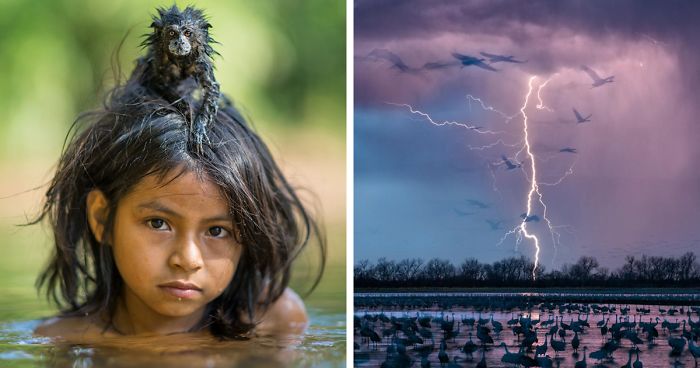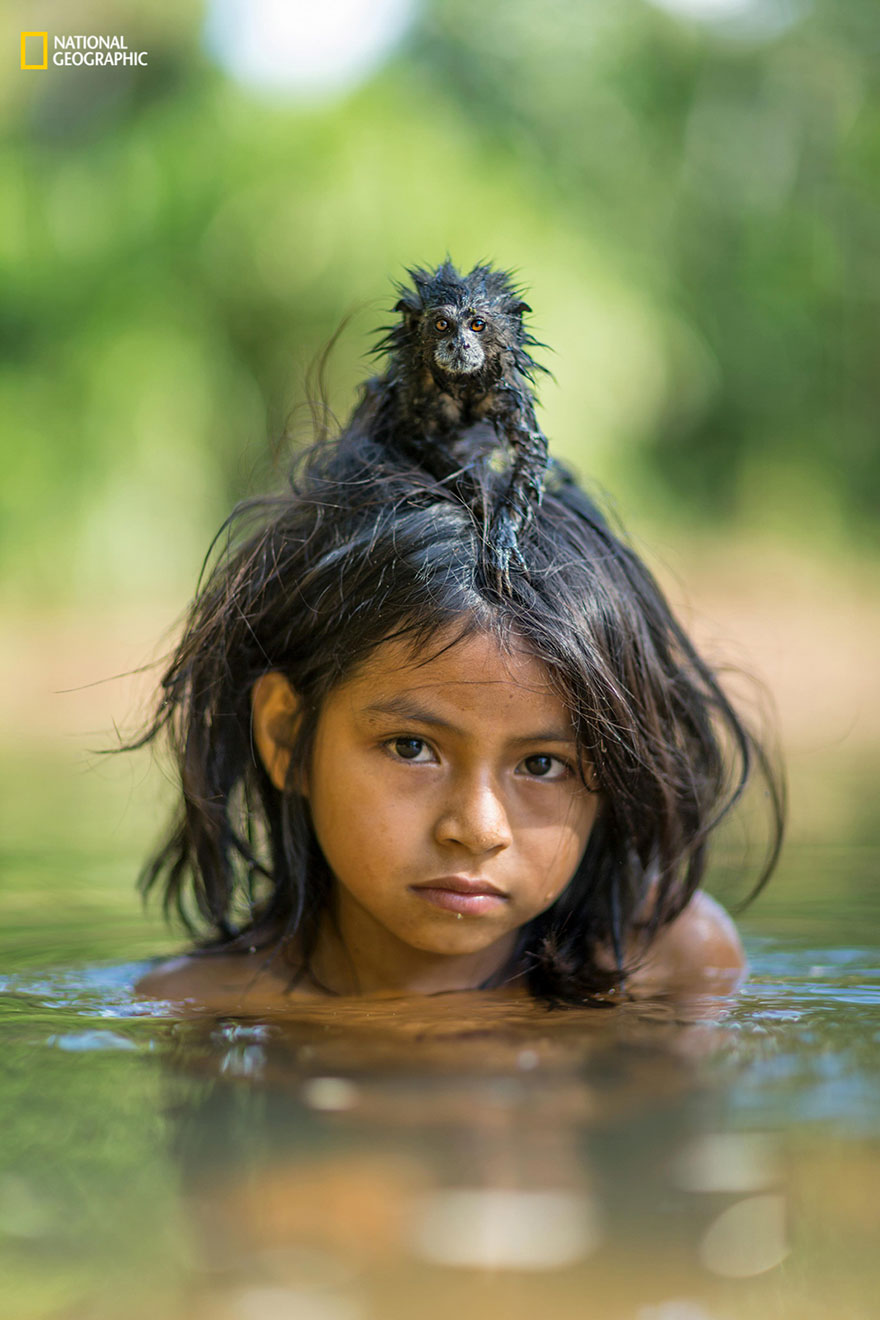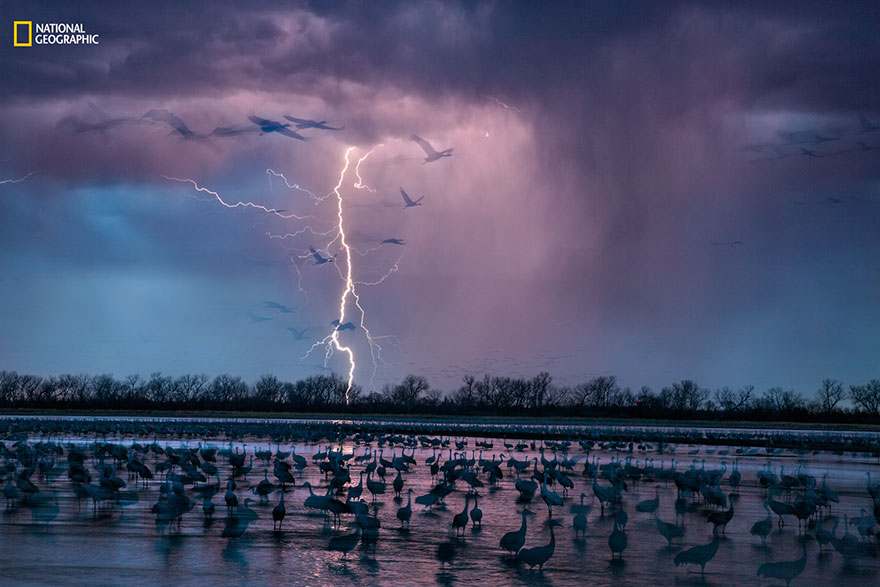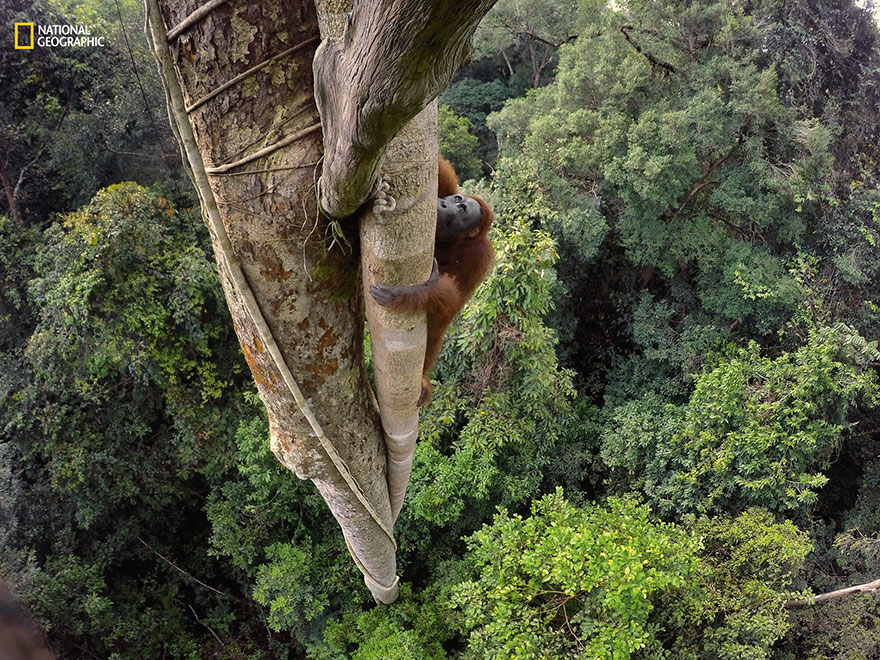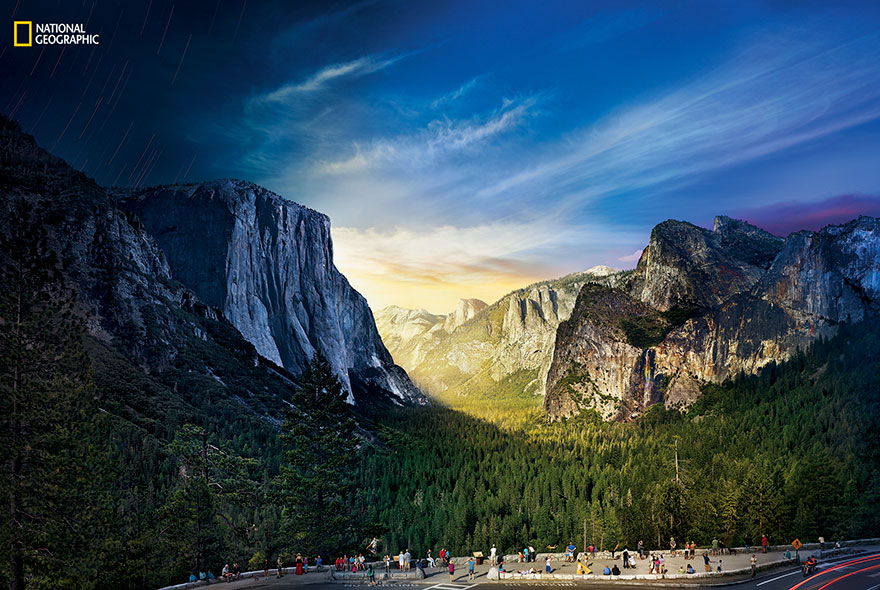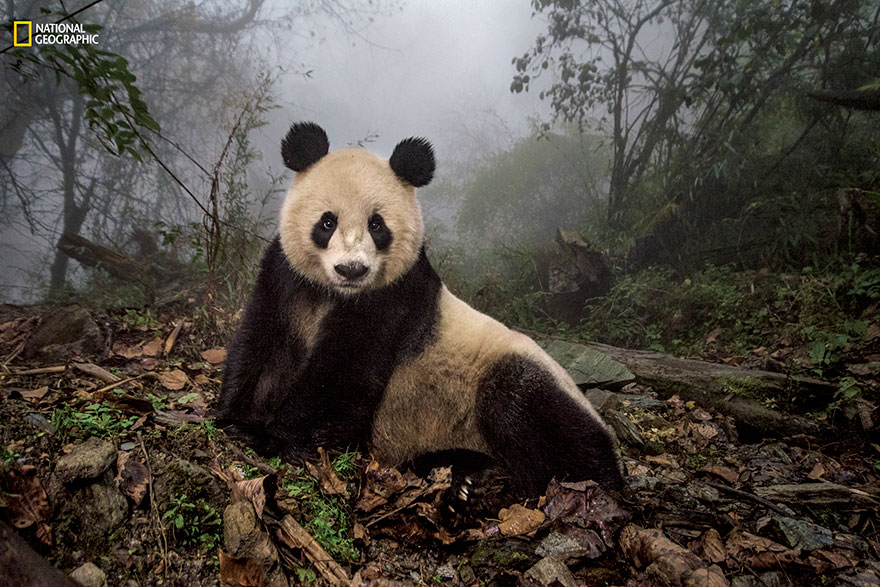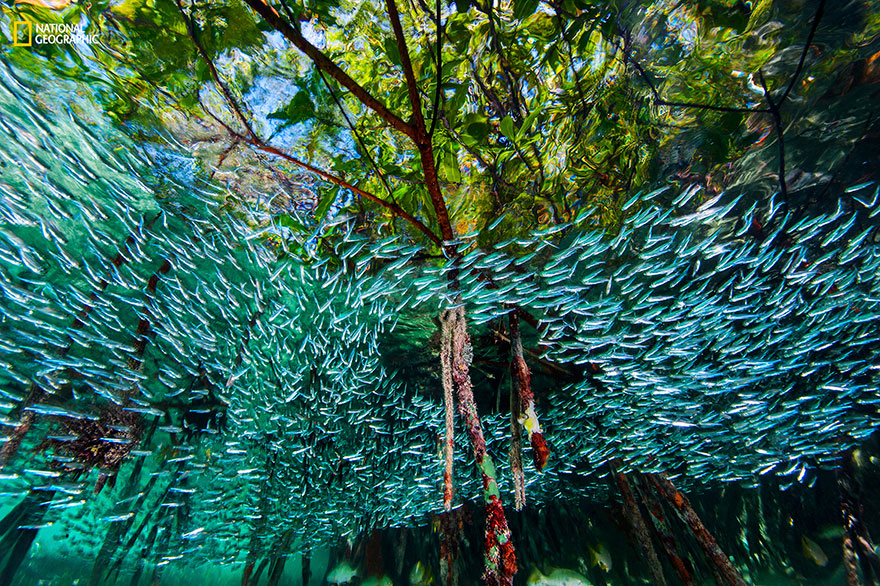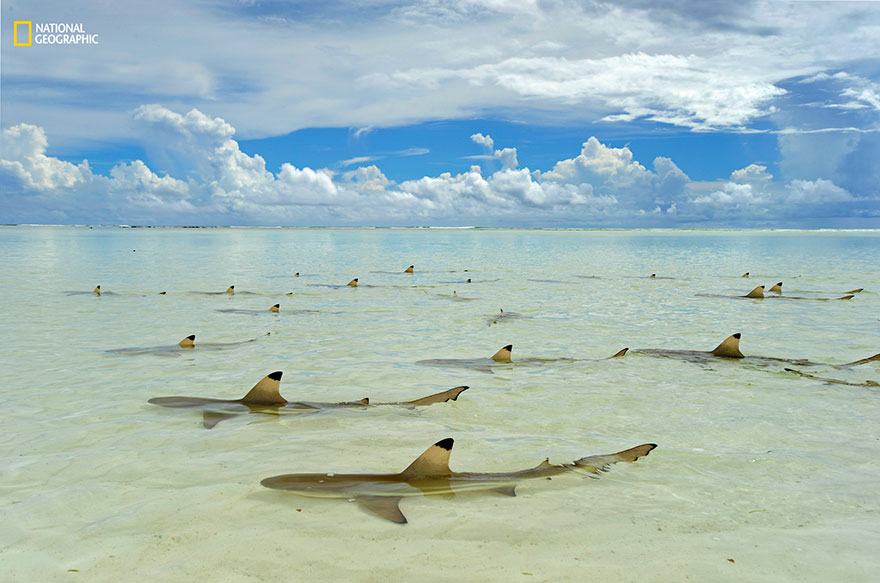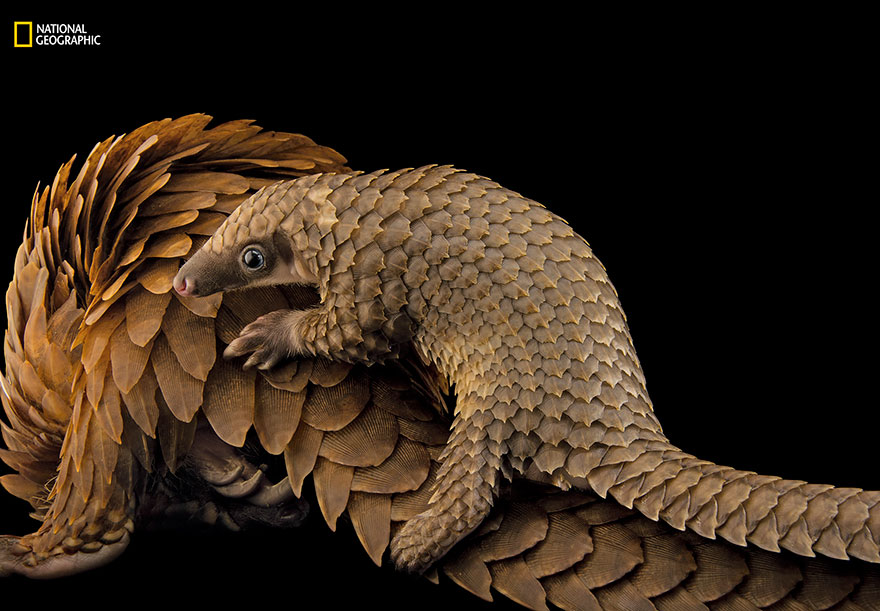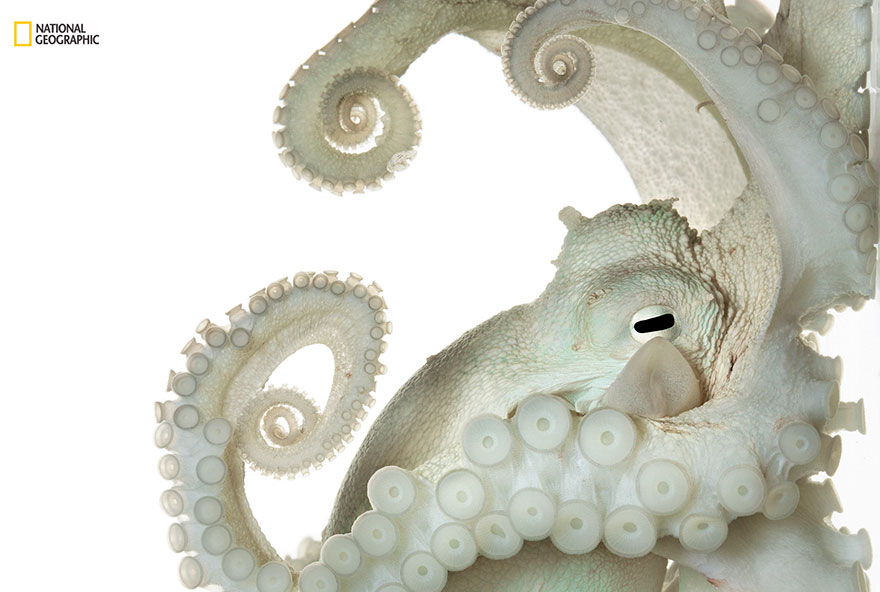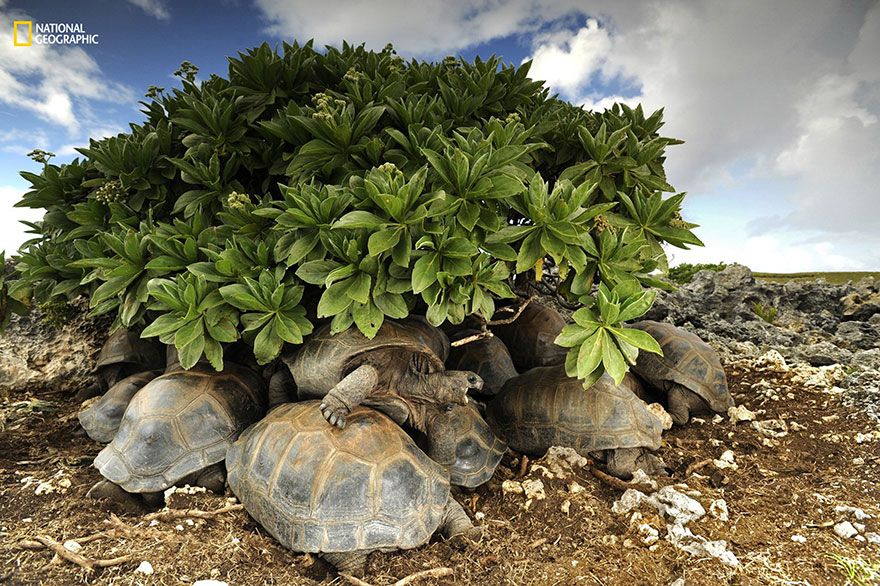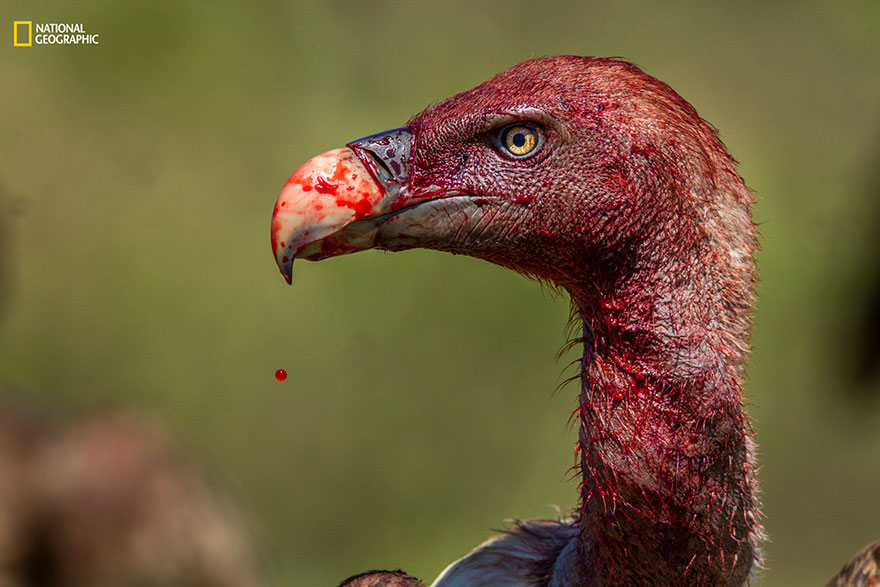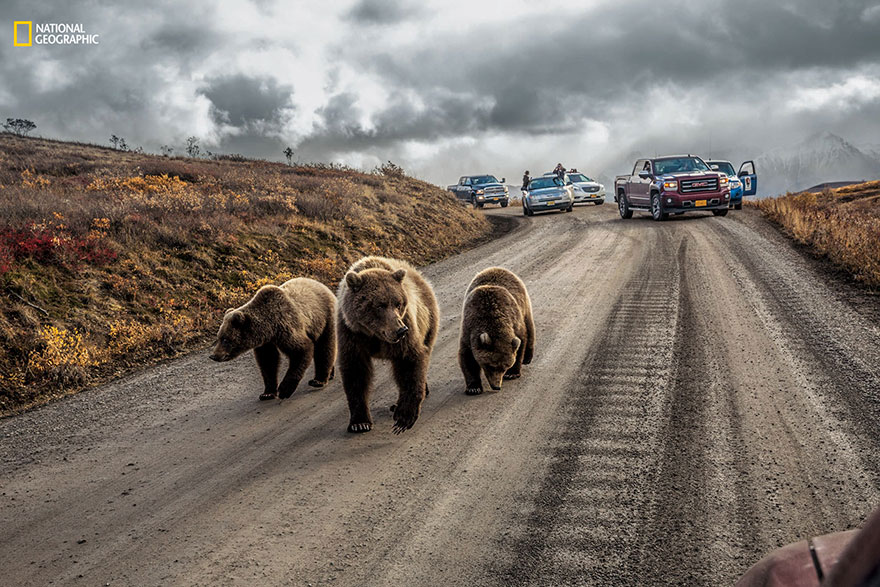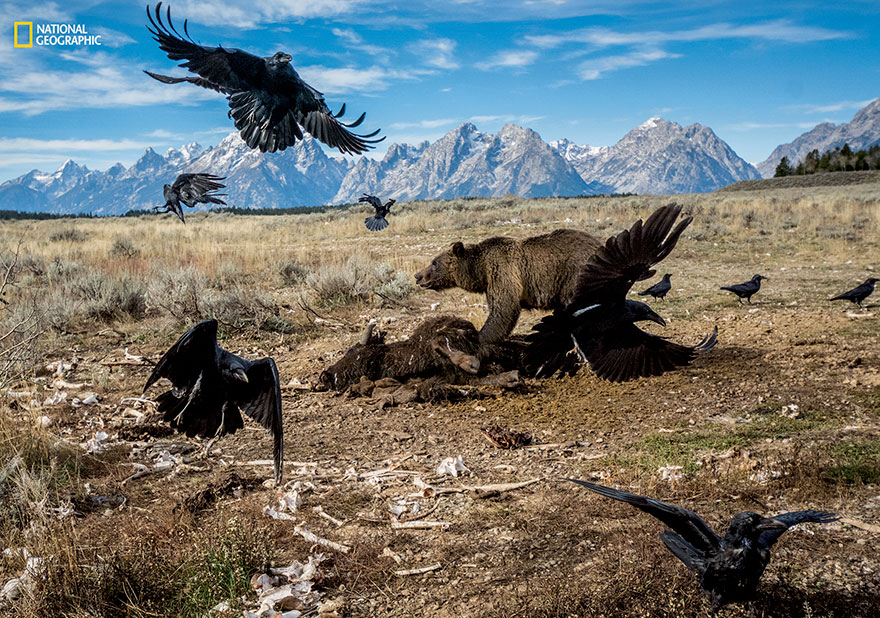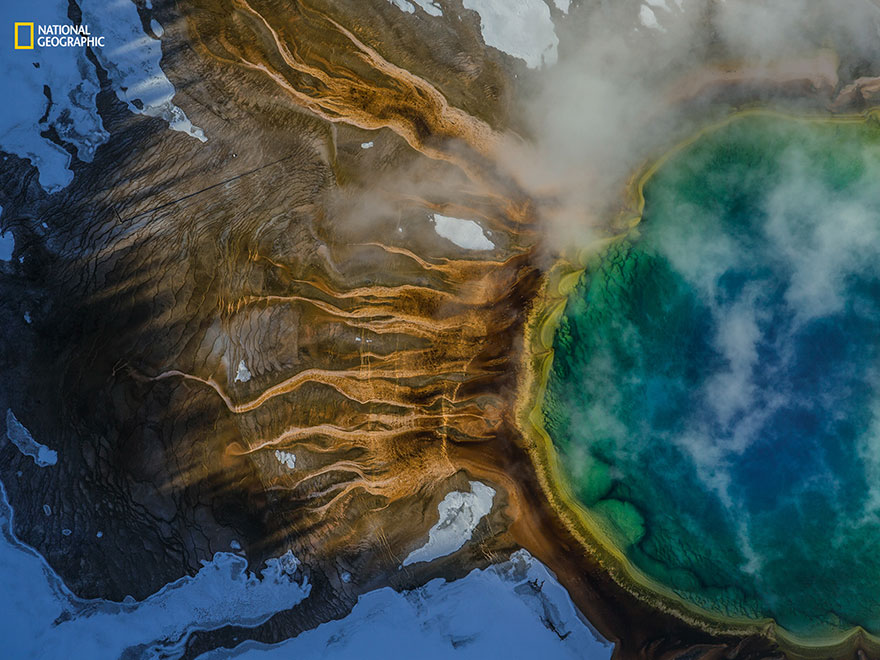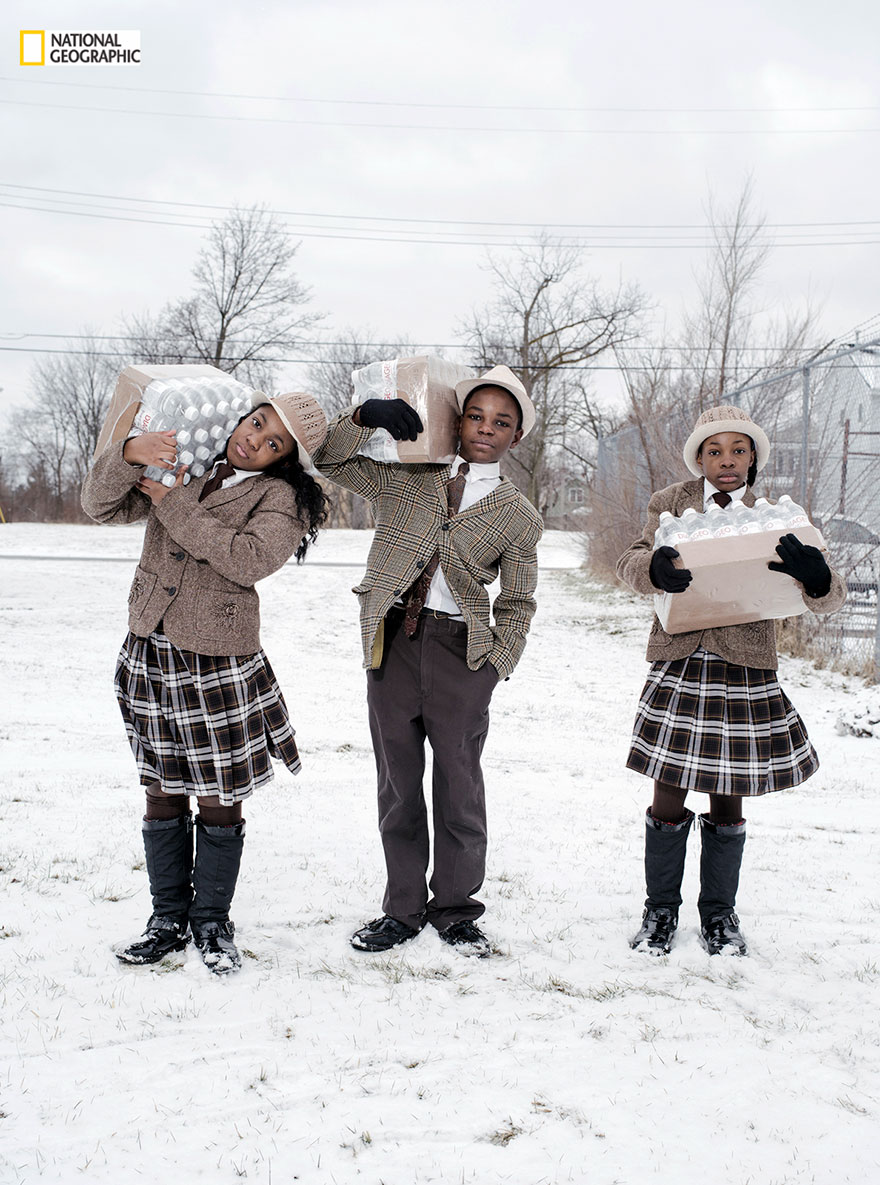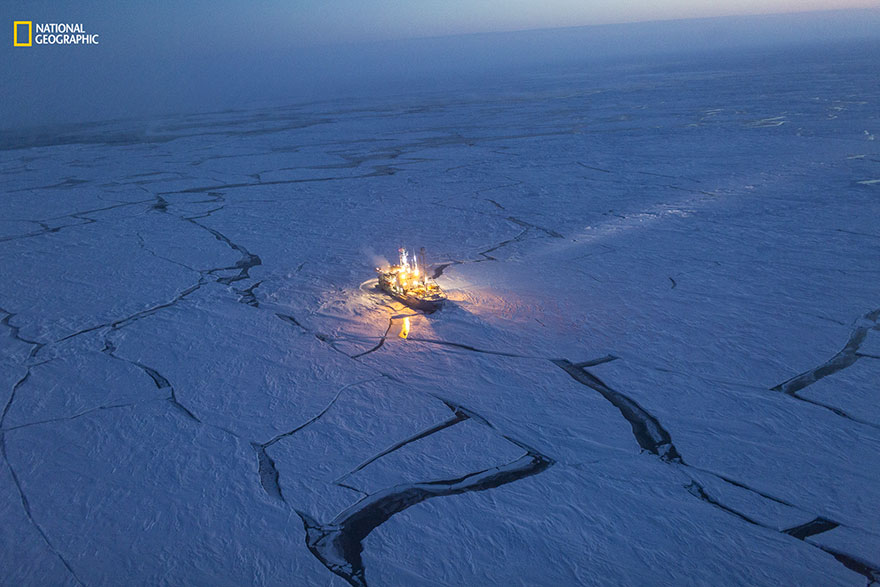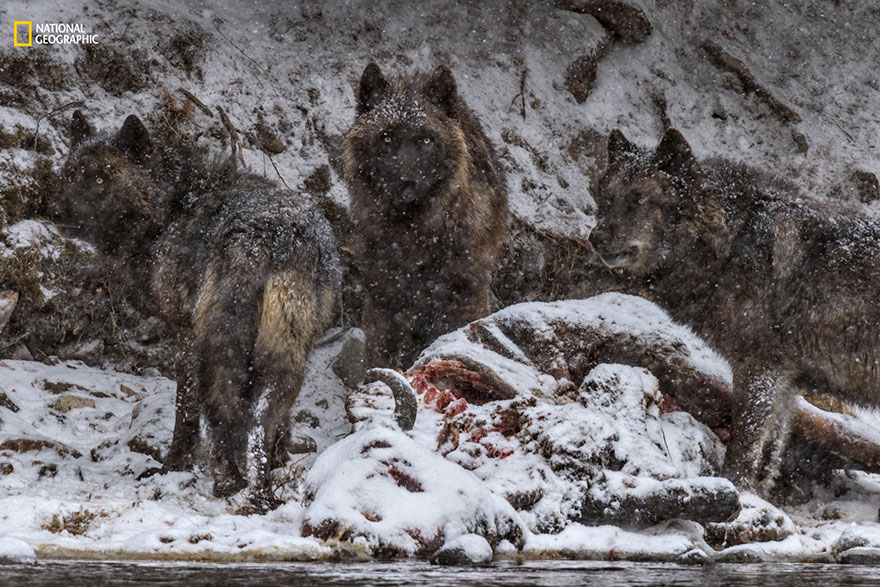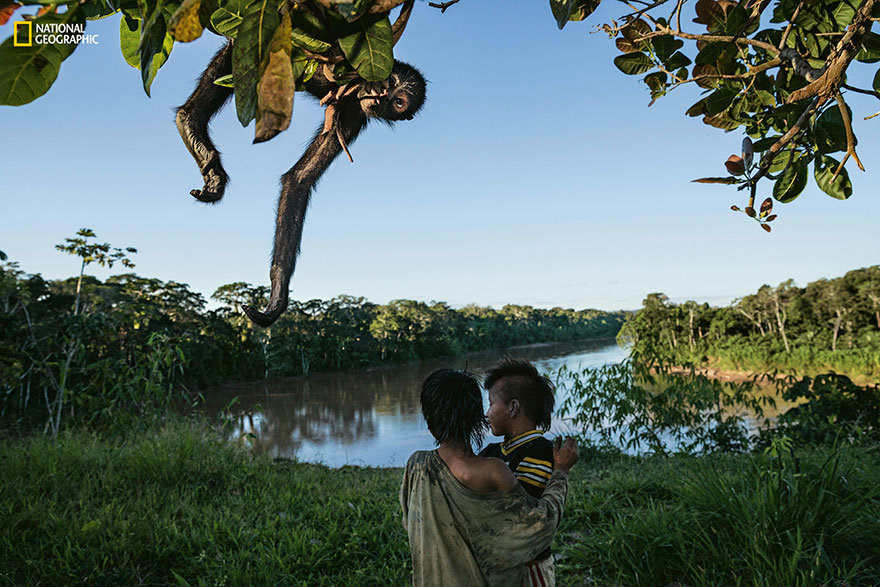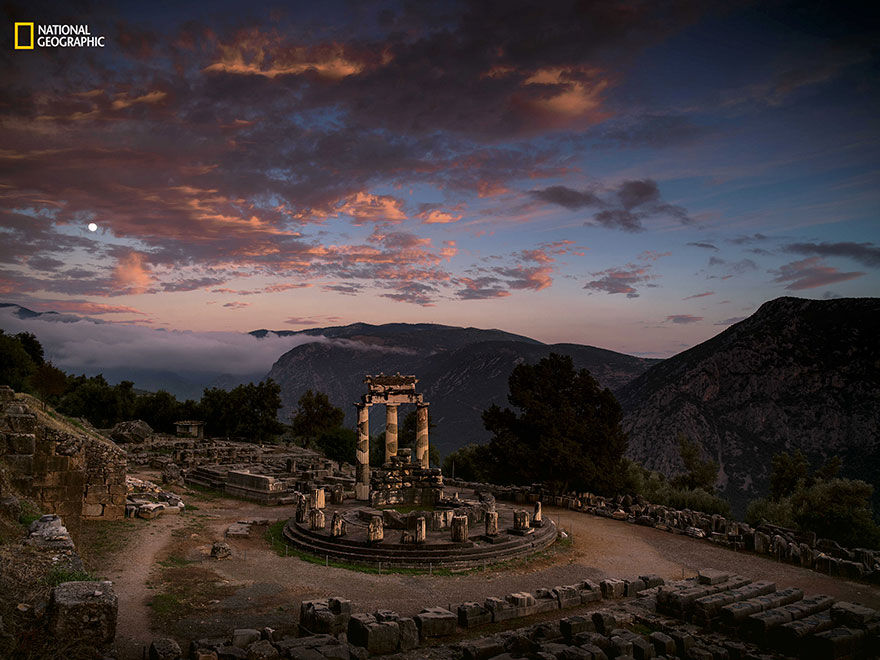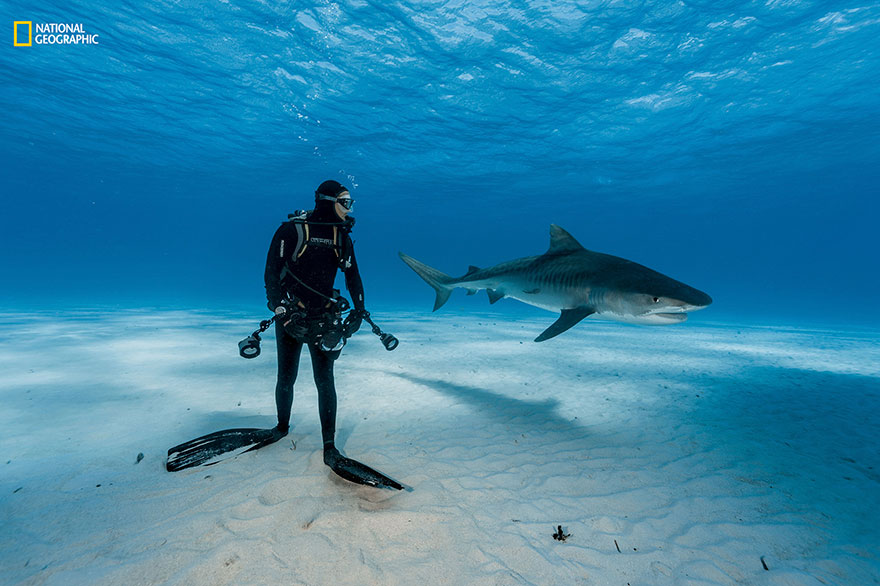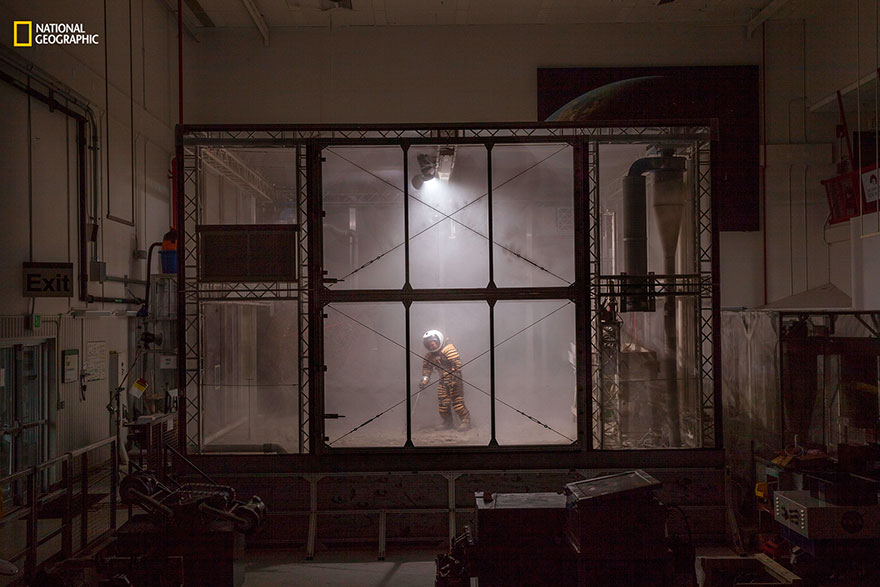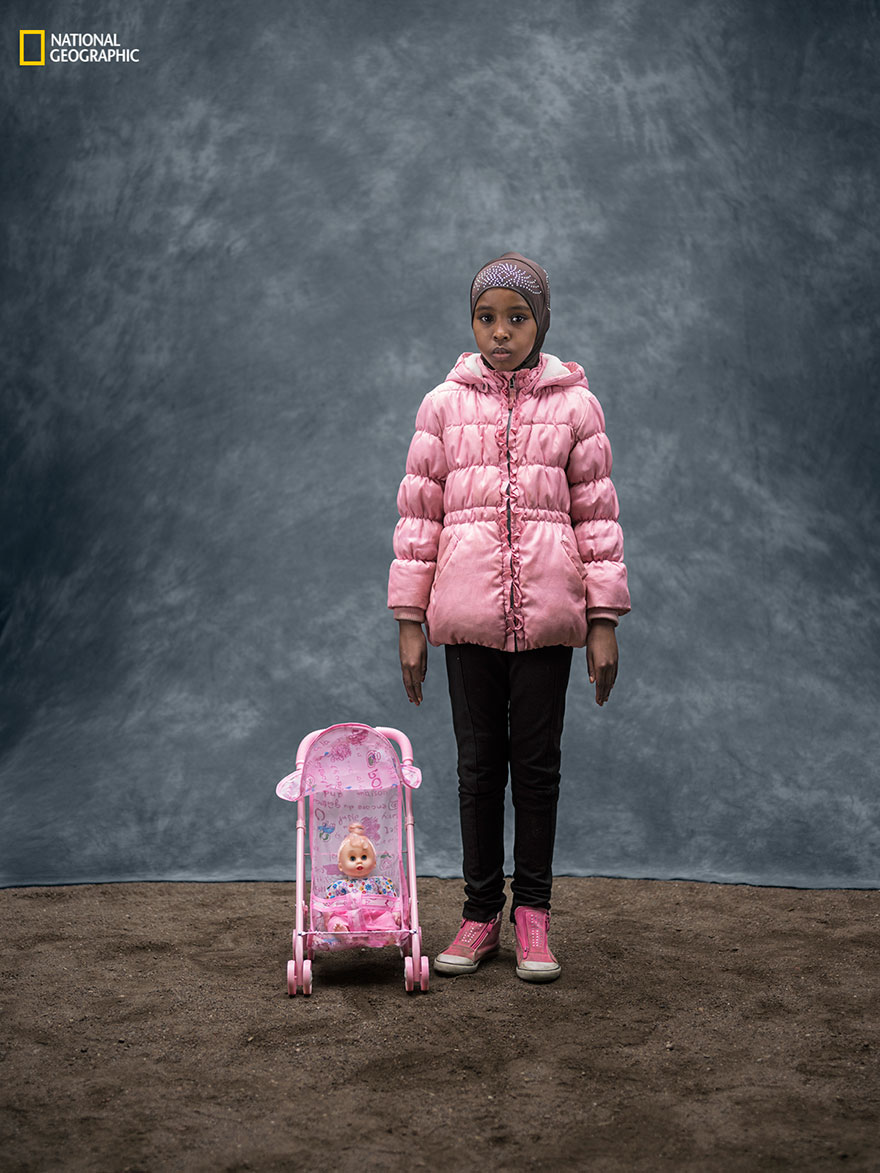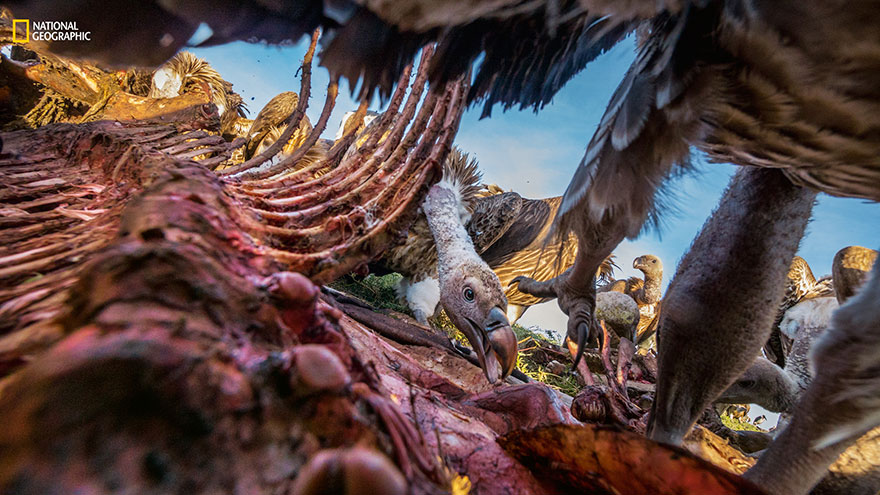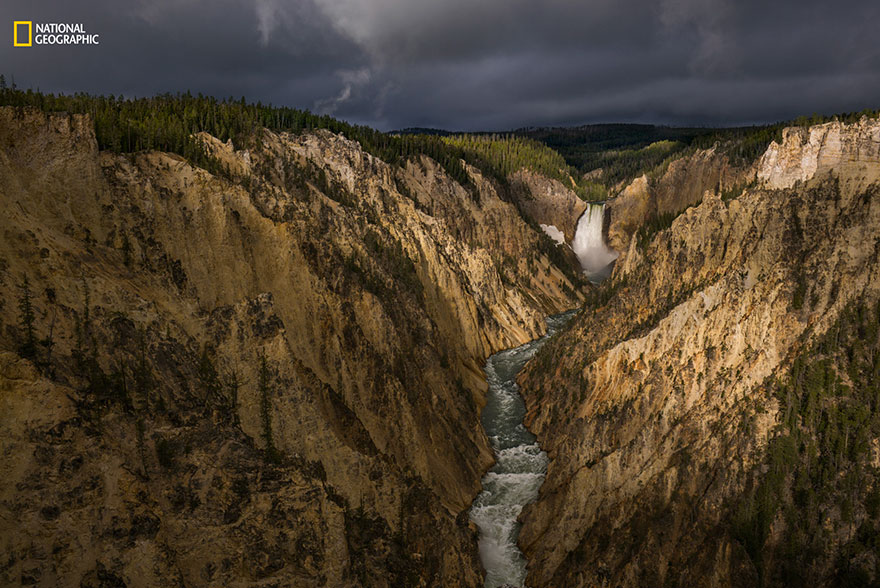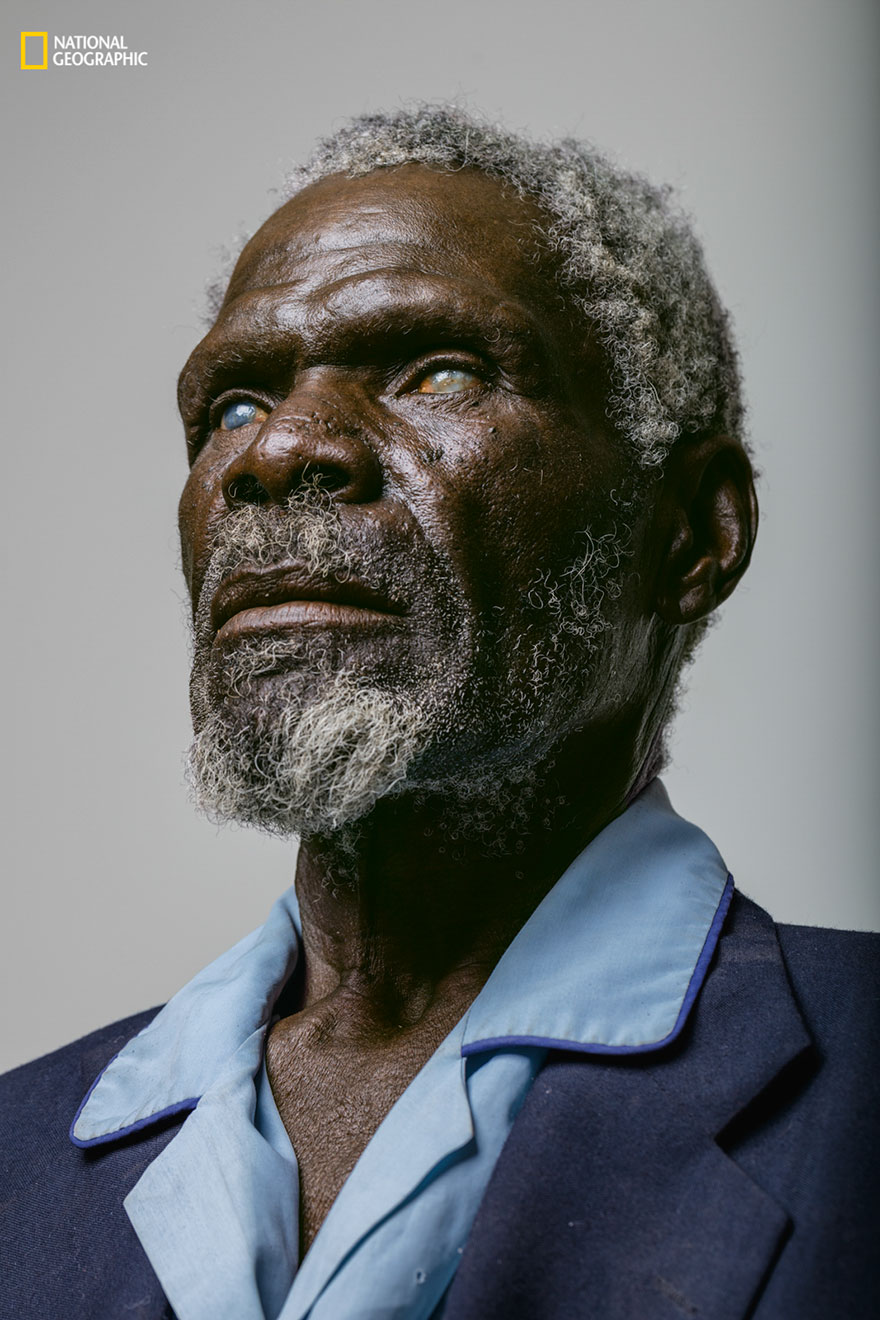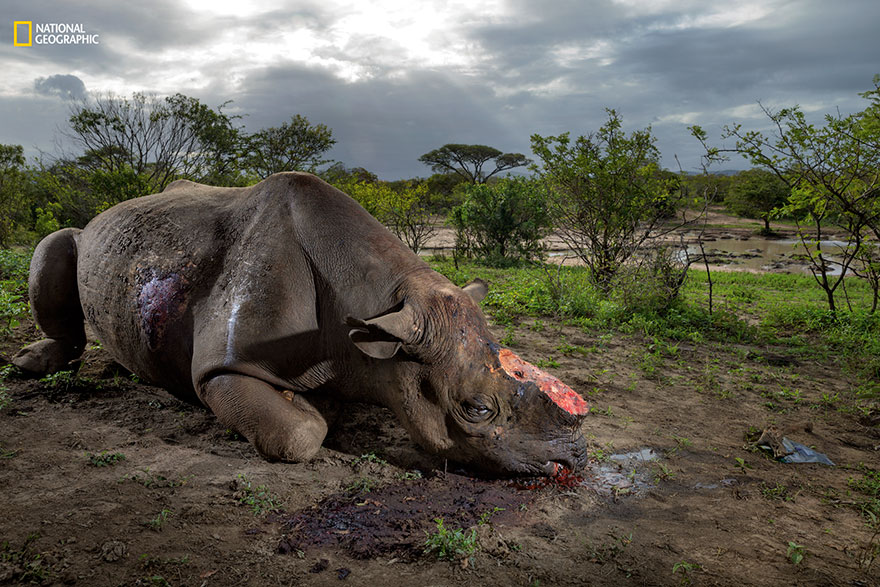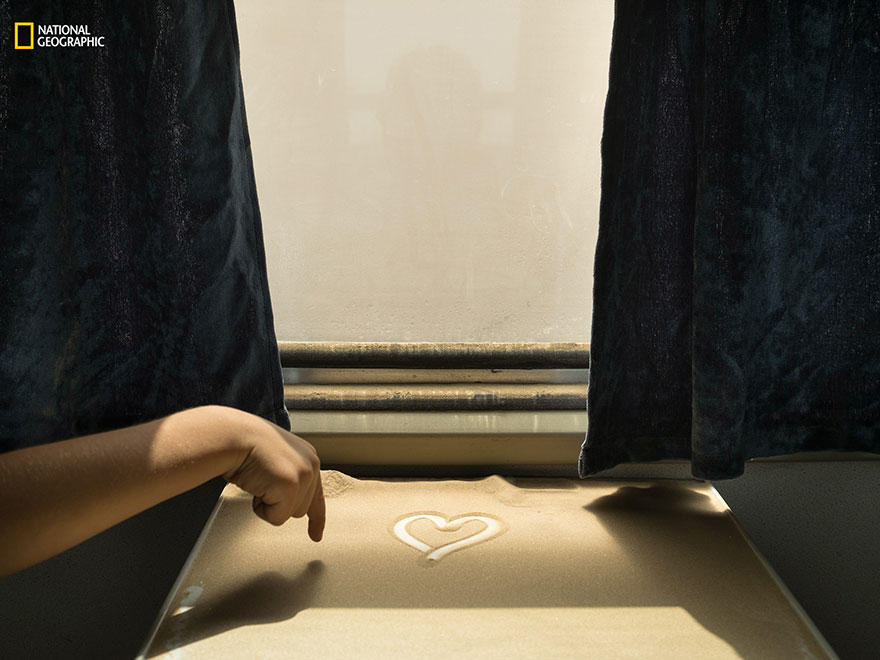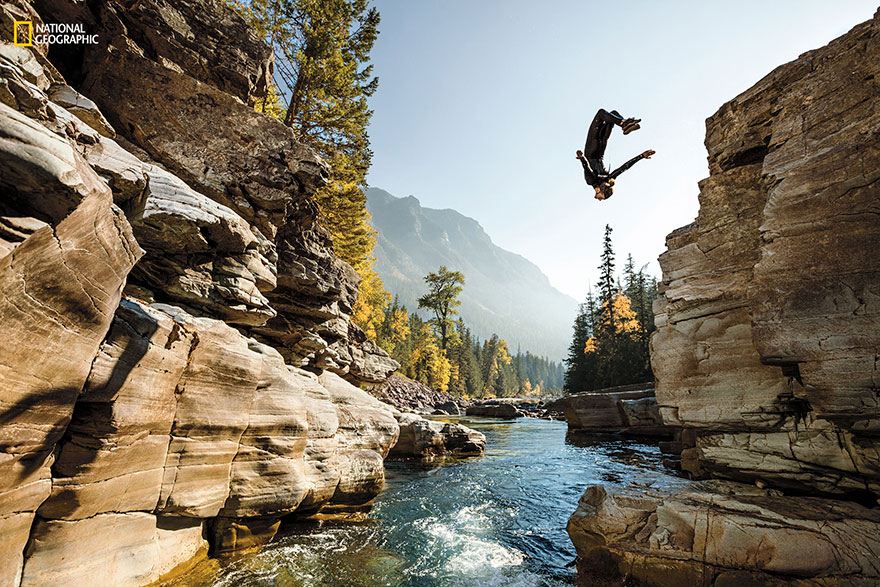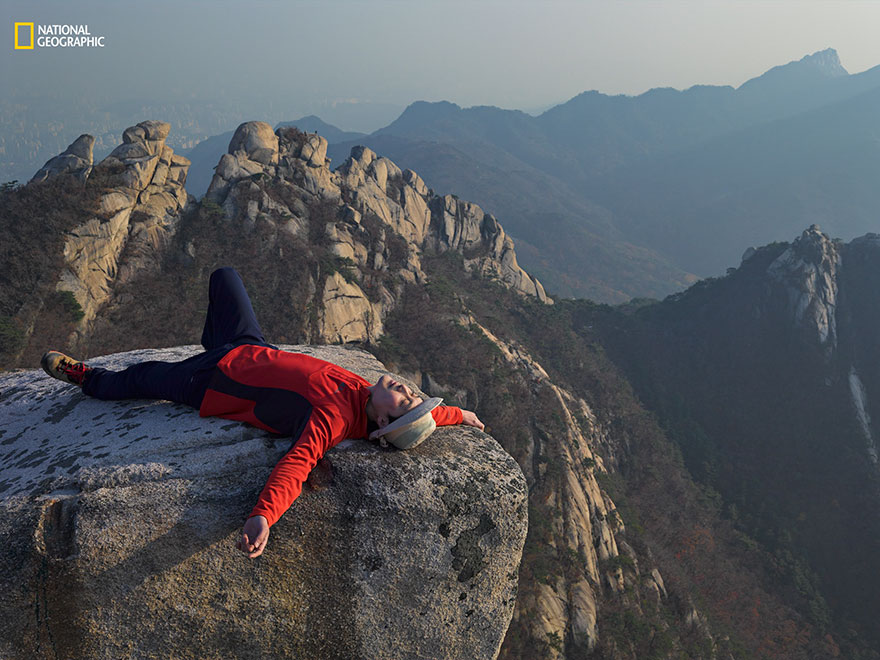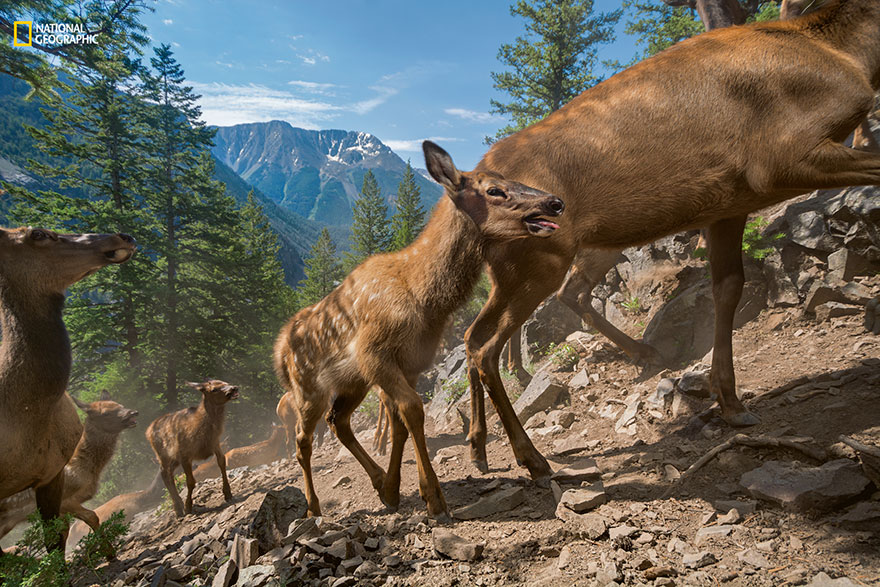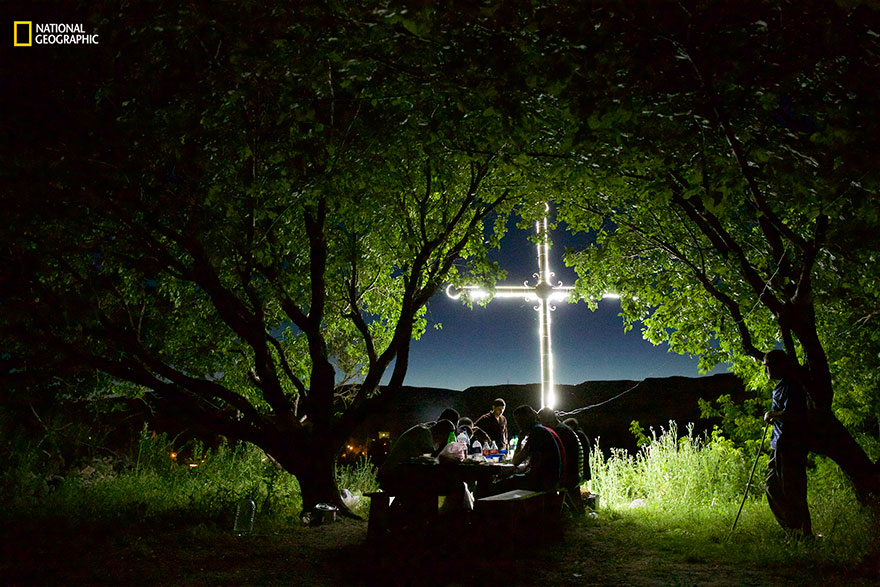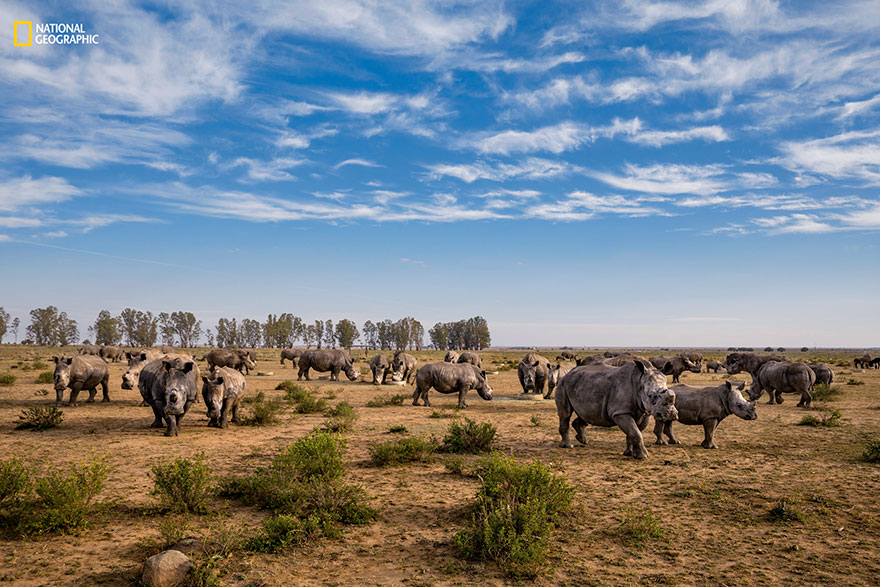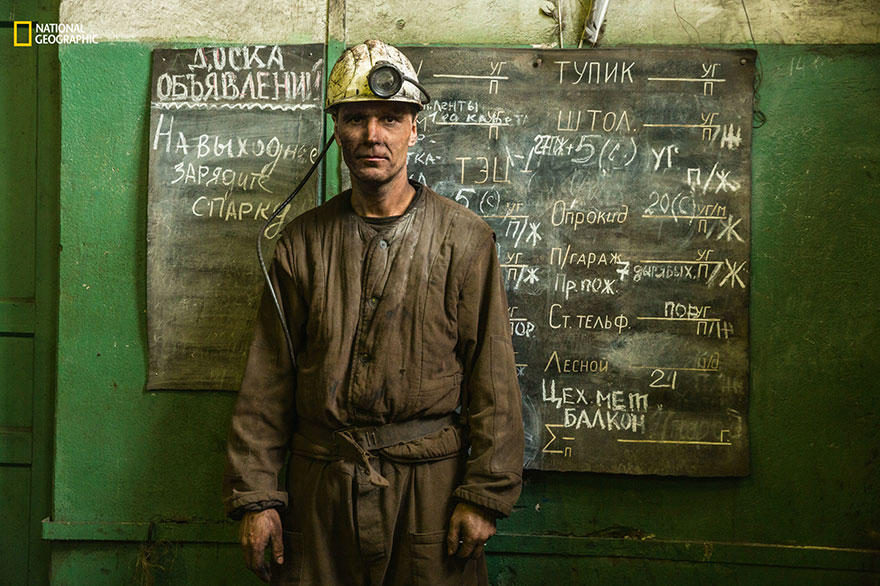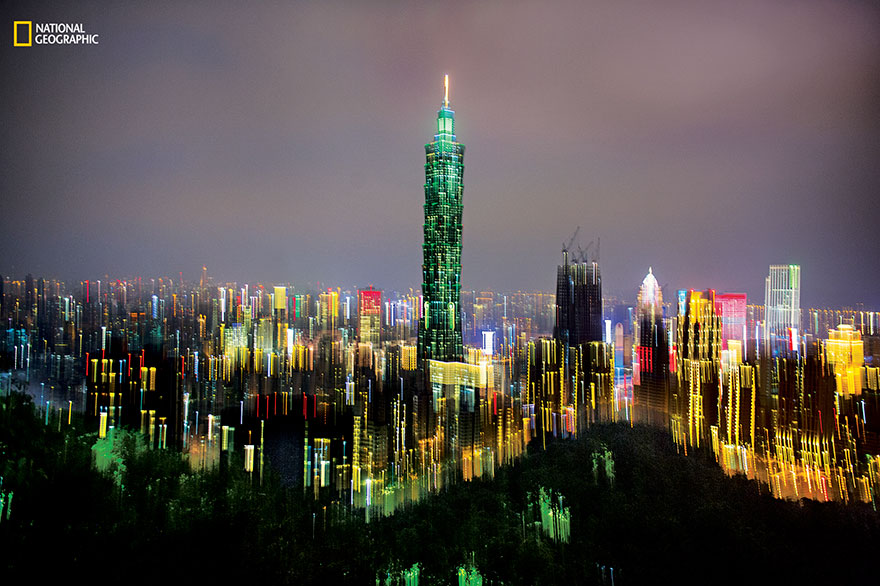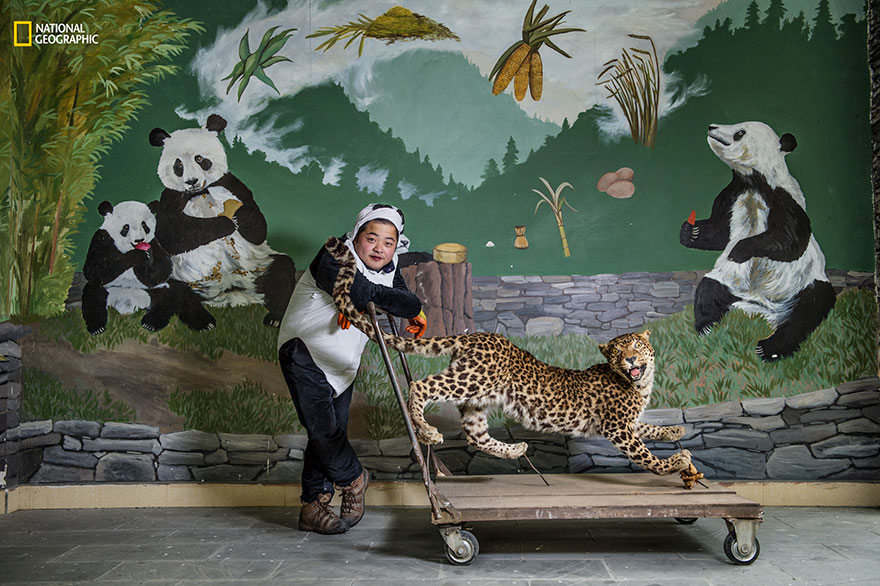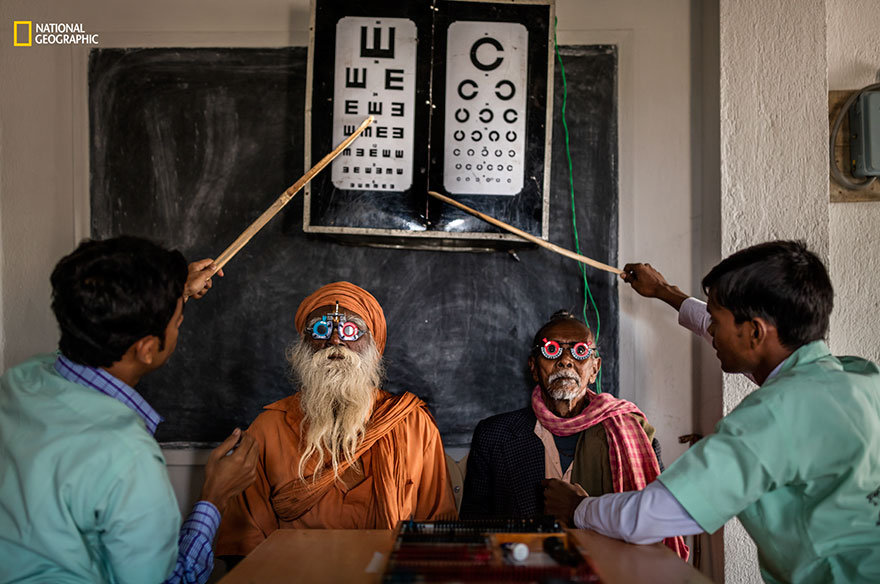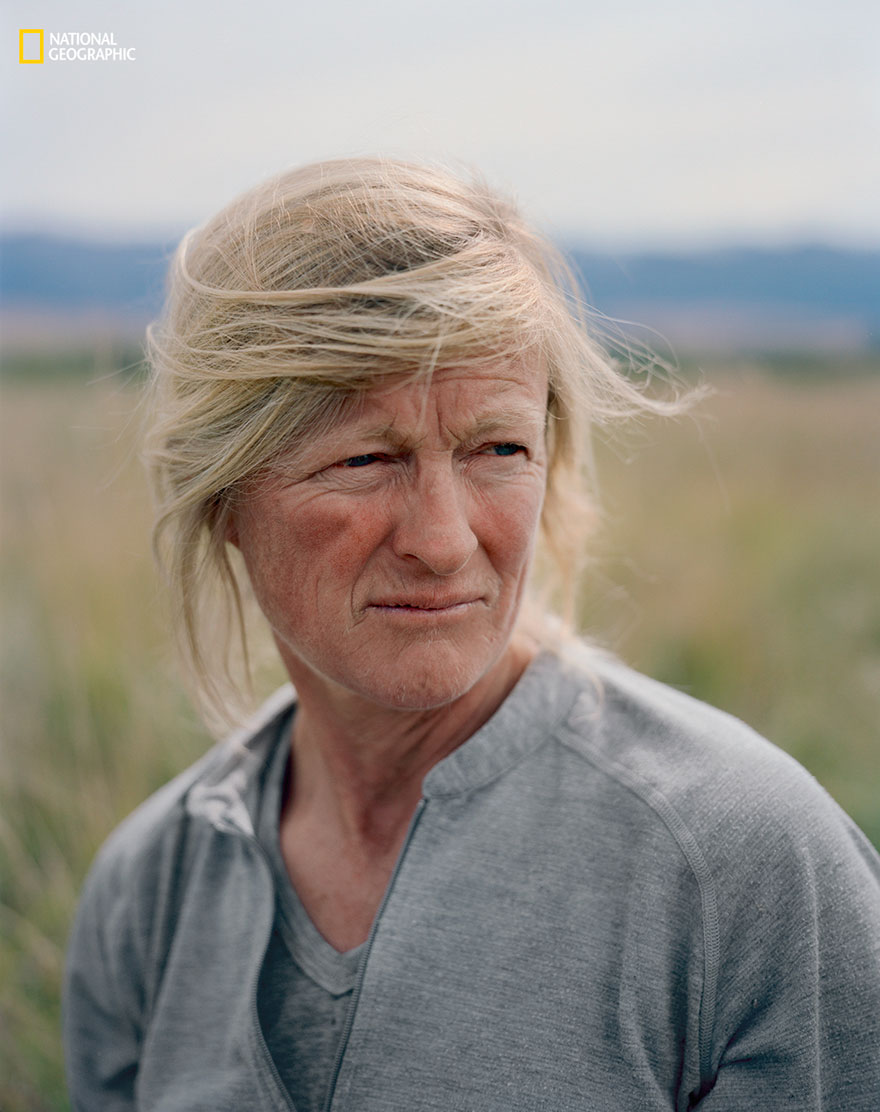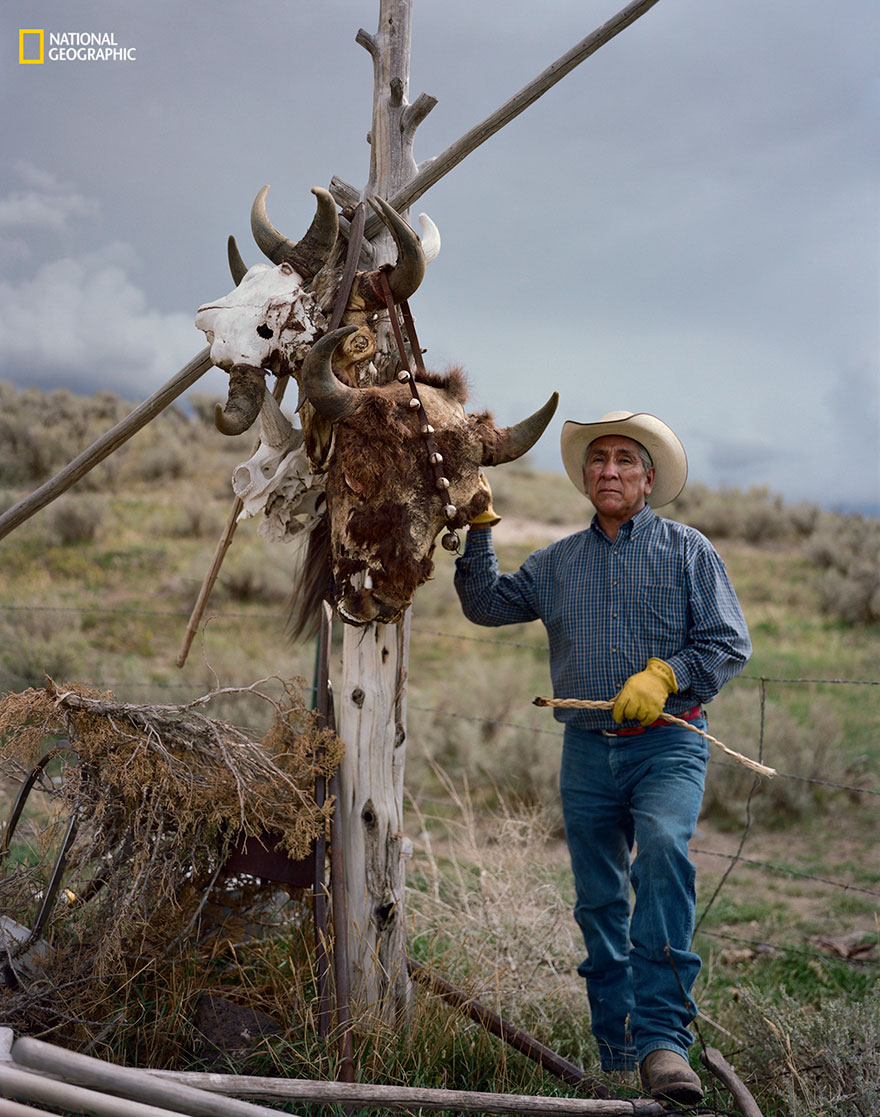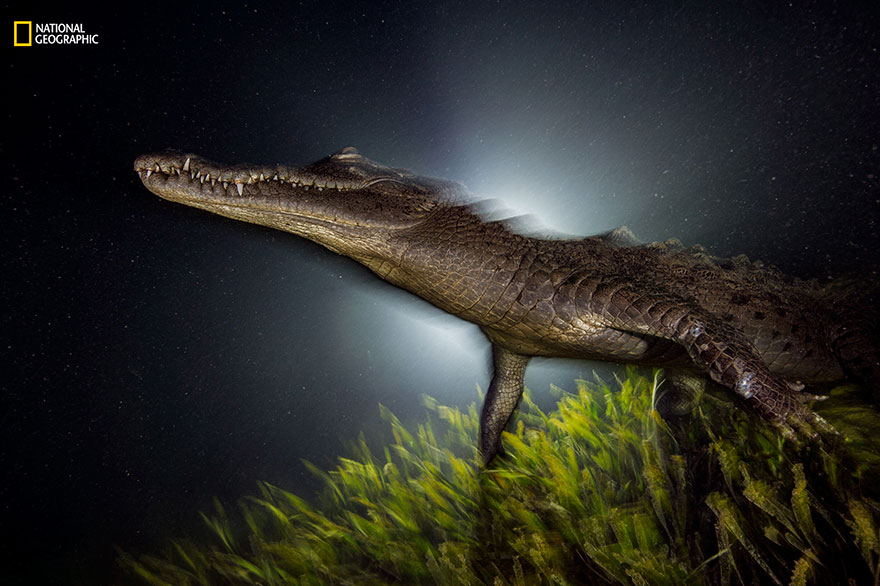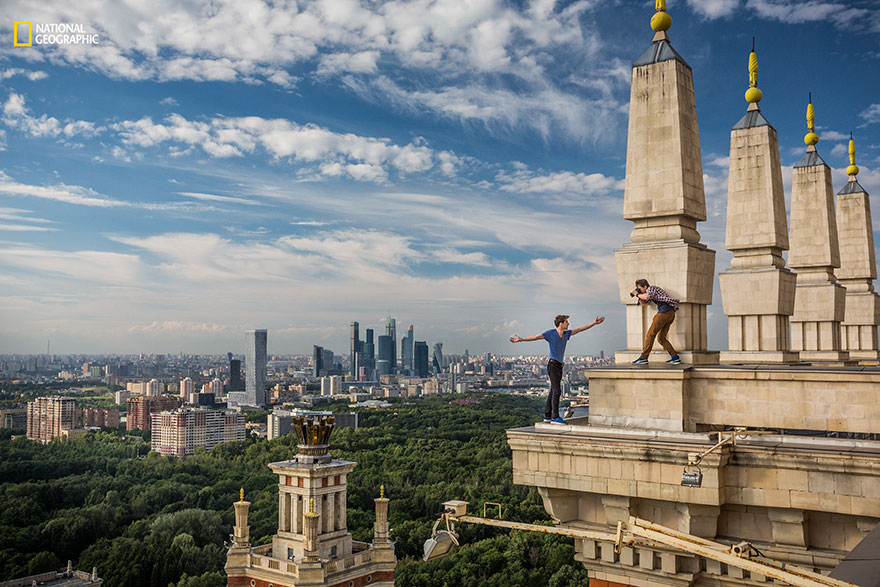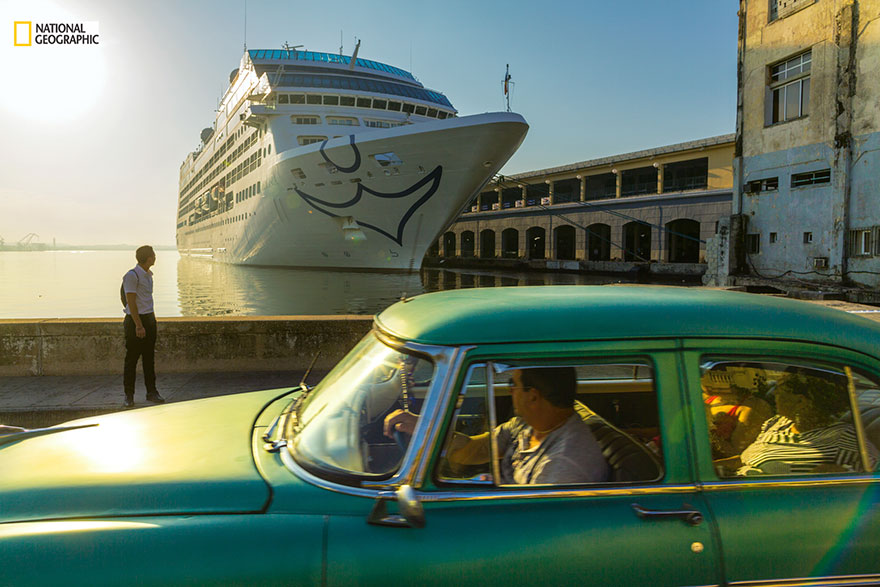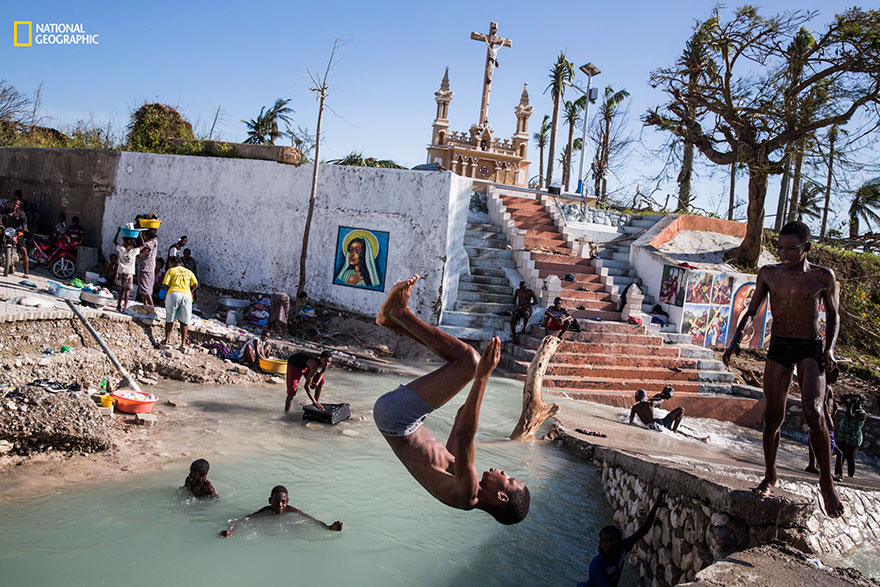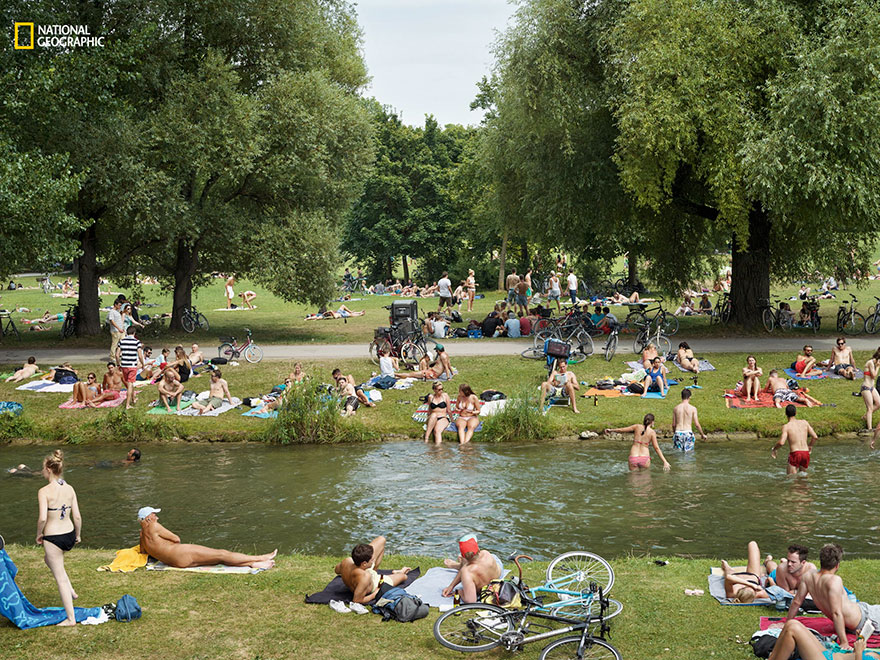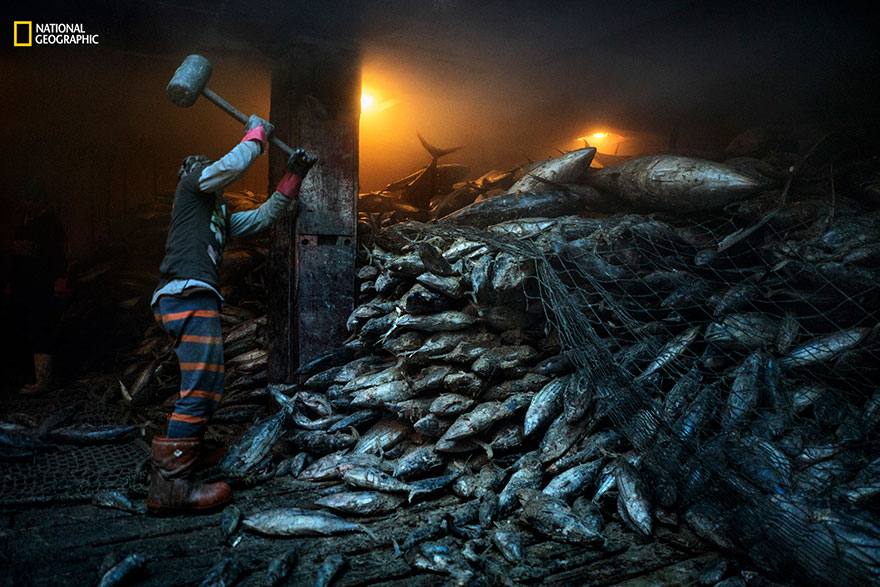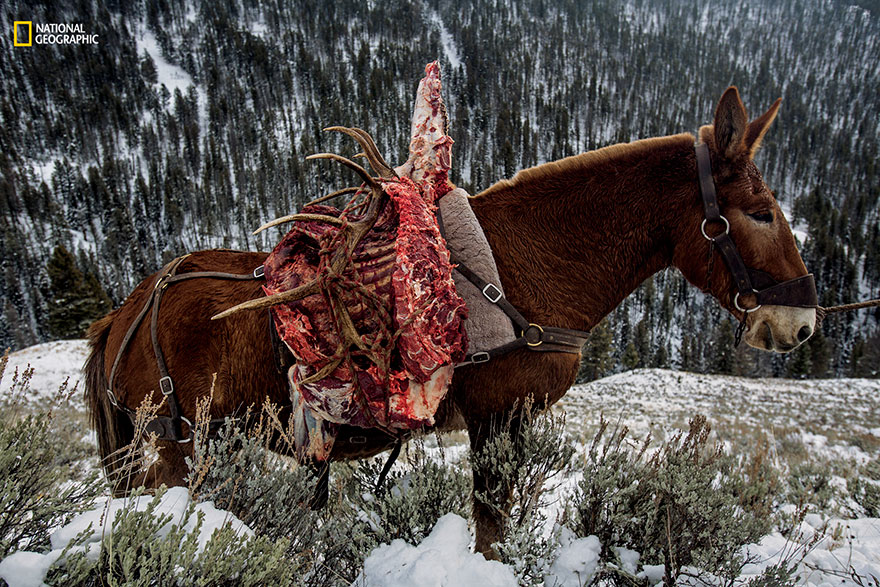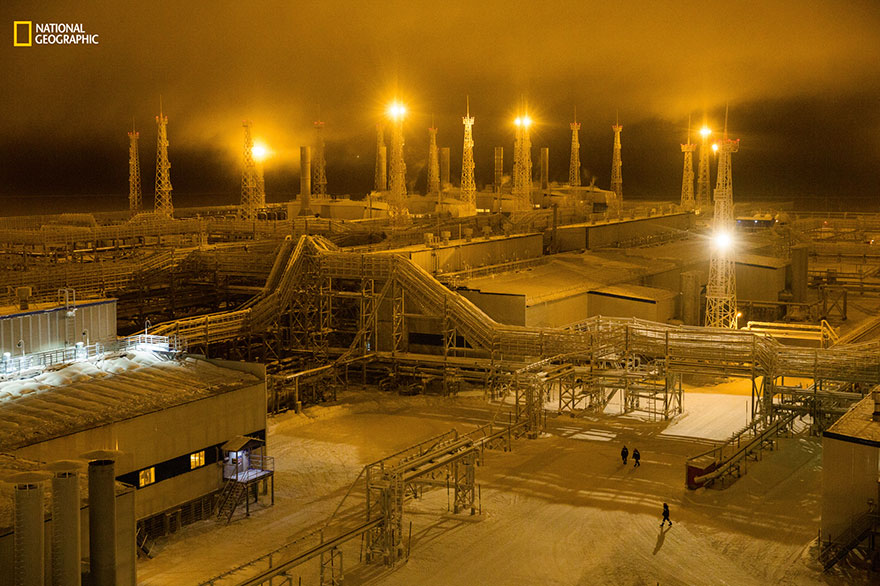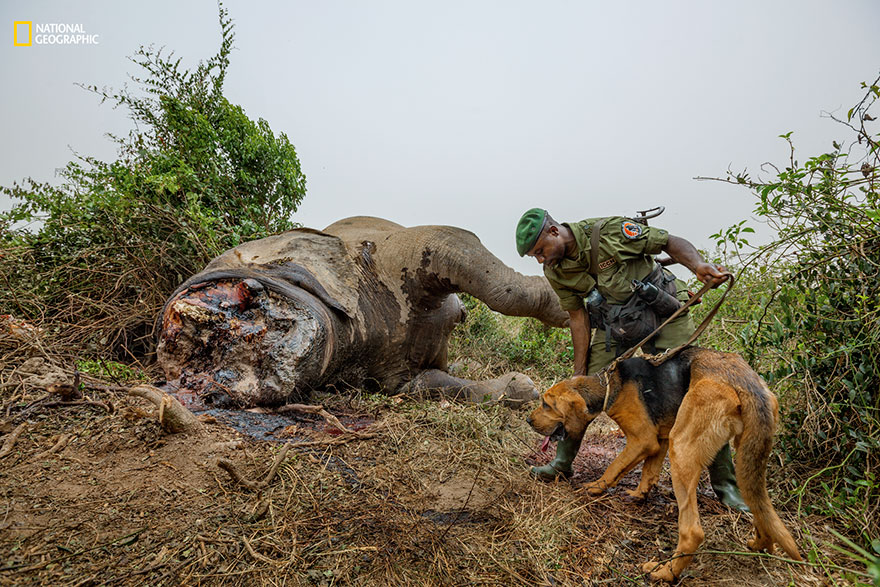The National Geographic has been showcasing world's best photography for years and 2016 is no exception. The magazine has just announced its Best Photos of 2016 list which is packed with remarkable visual stories from around the globe.
There are 52 images in the collection, produced by 91 photographers and curated from almost 2,300,000 photos and 107 stories. From a space suit test at NASA’s Kennedy Space Center, to a baby pangolin riding on its mother's back - these powerful photos take us to places that we've never seen before and connect with us emotionally.
More info: National Geographic
This post may include affiliate links.
A pet saddleback tamarin hangs on to Yoina Mameria Nontsotega as the Matsigenka girl takes a dip in the Yomibato River, deep inside Peru’s Manú National Park.
As an evening storm lights up the sky near Wood River, Nebraska, about 413,000 sandhill cranes arrive to roost in the shallows of the Platte River.
Beautiful colors in the sky and reflected in the water. Not the typical lightning pic!
Tempted by the fruit of a strangler fig, a Bornean orangutan climbs 100 feet into the canopy. With males weighing as much as 200 pounds, orangutans are the world’s largest tree-dwelling animals.
On a mountainside in Yosemite National Park, photographer Stephen Wilkes took 1,036 images over 26 hours to create this day-to-night composite.
Ye Ye, a 16-year-old giant panda, lounges in a wild enclosure at a conservation center in China’s Wolong Nature Reserve.
Silversides swirl through mangroves in the coral reefs off Cuba. The finger-size fish form large schools to try to confuse predators.
The way the surface of the water disappears makes it seem as though air and water worlds are the same! Fantastic framing, color. Great pic!
Lounging in inches of warm water, blacktip reef sharks wait for the tide to refill the lagoon at Seychelles’ Aldabra Atoll.
A baby African white-bellied tree pangolin hitches a ride on its mother at Pangolin Conservation, a nonprofit organization in St. Augustine, Florida.
The nervous system of this common octopus is larger and more complex than most invertebrates’. Can it think? Is it conscious? Researchers wonder if we’ll ever know.
Tortoises jockey for shelter from the sun. They will cook in their shells if they remain in the heat for too long.
Blood drips from a Rüppell’s vulture’s beak. The neck and head are sparsely feathered, which helps keep gore, guts, and fecal matter from clinging in a deep carcass dive.
I never knew this about the vulture. They live in abundance in the south-west
In Alaska, a mother grizzly and her cubs cause a “bear jam” on Denali’s 92-mile-long Park Road, open to private vehicles only five days each summer.
Parts of the Yellowstone region are wilder now than they’ve been in a century. Grizzlies are spreading. This one, in Grand Teton National Park, fends off ravens from a bison carcass. Workers moved it away from the road to keep scavengers and tourists apart.
The colors of Grand Prismatic Spring in Yellowstone come from thermophiles: microbes that thrive in scalding water.
Am I the only one that immediately was reminded of the structure of the human eye? Totally see an eye ball and optic nerves here.
In Flint, Michigan, siblings Julie, Antonio, and India Abram collect their daily allowance of bottled water from Fire Station #3, their local water resource site.
2 years ago the governor diverted there water to save money which corroded pipes leading to lead poisoning, and it still has not been fixed
To track changes in sea ice, the Norwegian research vessel Lance drifted along with it for five months in 2015, on a rare voyage from Arctic winter into spring.
The carcass of a bison that drowned in the Yellowstone River became a feast for this wolf and her two-year-old offspring.
Indigenous people farm and hunt in Peru's Manú forest but only for their own subsistence. Spider monkeys are a favorite quarry—and also favorite pets.
Twilight bathes the sanctuary of Athena Pronaia at Delphi. Pilgrims in ancient Greece may have offered sacrifices here before consulting the oracle of Delphi.
Perfect moment sunset high lighting against dusky tones in background
A diver keeps a close watch on a tiger shark in the Bahamas. But the scene may not be as dangerous as it looks: Tigers rely on surprise to hunt prey and are unlikely to attack divers who keep them in sight.
Dressed for Mars, space engineer Pablo de León tests a prototype space suit at NASA’s Kennedy Space Center, where fine soil and fans simulate conditions on the red planet.
Isra Ali Saalad moved from Somalia to Sweden with her mother and two siblings. “The reason we came to this country is because it is safe,” says her sister, Samsam.
A young Rüppell’s vulture eats a piece of zebra in the Serengeti. More dominant birds have taken their fill of the choice meat, leaving the skin and bones for other birds.
Photographs and paintings of sights such as this—the Grand Canyon of the Yellowstone— inspired Congress to create the park in 1872. It was a revolutionary step.
Gerd Gamanab, 67, sought treatment too late: Years of labor in the Namibian sun and dust destroyed his corneas. His blindness likely could have been prevented.
A lot of diseases could be prevented.... I am saddened by this man having no sight.
Poachers killed this black rhinoceros for its horn with high-caliber bullets in South Africa’s Hluhluwe-Imfolozi Park. Black rhinos number only about 5,000 today.
people are the most cruel creatures in the world. Watching this picture I feel ashamed of being one of them.
As the train nears the end of the journey at Kashgar station, a child draws a heart in the desert sand that came along for the ride.
Steven Donovan, flipping into a pool, took a seasonal job at Glacier National Park to sharpen his photography skills.
Virunga Park rangers in the Democratic Republic of the Congo undergo military-style training, including ambush tactics, due to the constant threat from armed groups.
Toughest job, very dangerous, poachers execute rangers like these to take horns, tusks
Within sight of downtown Seoul, South Korea’s capital and a hub of modern stressful life, salesman Sungvin Hong rests after a hike in Bukhansan National Park.
His reenactment of Glenn waking up at the prison after the Governor's war on The Walking Dead.
On their first migration to their summer range in southeastern Yellowstone, three-week-old calves of the Cody elk herd follow their mothers up a 4,600-foot slope.
Villagers in Bagaran, Armenia, sing of cultural endurance and survival while picnicking at night beneath apricot trees—and a giant cross that shines defiantly into Turkey.
These rhinos on a South African ranch have recently had their horns trimmed. Unlike elephant ivory, rhino horn grows back when cut properly. The rancher is stockpiling the horn in hopes that selling it will soon be legal.
This is a much better and much less wasteful alternative to poaching. This should be made known
Igor Voronkin surfaces at the Barentsburg coal mine on Spitsbergen, in Norway’s Svalbard archipelago. Like most of the 400 other miners, he’s from eastern Ukraine.
A panda keeper in China uses a stuffed leopard to train young pandas to fear their biggest wild foe. A cub’s reactions help determine if the bear is ready to survive on its own.
Eye-care workers use test-lens frames to conduct eye exams in India’s Sundarbans region. Their goal: to help reduce India’s blind population of more than eight million.
Becky Weed and her husband, David Tyler, raise sheep near Yellowstone National Park. They ranch with a guard dog to ward off coyotes, bears, and mountain lions.
At Fort Hall, Idaho, Leo Teton stands next to a pole ornamented with bison skulls, representing the spiritual connection between the Shoshone-Bannock tribe and bison.
We do. But a part of American Natives' relationship to the bison was that the bison provided them with food. This pole is similar to a cross for Christians.
An American crocodile rises from a bed of turtle grass to return to the labyrinth of mangrove roots that offer near-impenetrable shelter.
Kirill Vselensky perches on a cornice in Moscow as Dima Balashov gets the shot. The 24-year-olds, risktakers known as rooftoppers, celebrate their feats on Instagram.
A curiosity, a portent, a looming symbol of the impending change: This May, for the first time in nearly four decades, an American cruise ship sailed into Havana Bay.
The destruction of the pristine Cuban natural environment has begun. Yay tourists!
Kids swim in a river where a bridge collapsed in Port Salut, Haiti. The city suffered serious damage from Hurricane Matthew, with many homes completely destroyed.
One of the poorest countries on earth, right in the shadow of the US.
Summer attracts sunbathers—clothed and otherwise—to the grassy banks of Munich’s Schwabinger Bach. The meadows here have been popular with nudists since the 1970s.
A worker uses a mallet to dislodge frozen tuna aboard a Chinese cargo vessel docked at the city of General Santos, in the Philippines.
A harvested bull elk and its prized antlers are transported the old-fashioned way—by mule. More than 72,000 hunters came to the lands around Yellowstone and Grand Teton in 2014.
Russia’s Bovanenkovo natural gas field, on the Yamal Peninsula, was deemed too expensive to develop until President Vladimir Putin made it a priority.
With the help of a bloodhound, a ranger tries to track the poachers who killed this elephant and cut off part of its head to get away quickly with its ivory tusks.
yesterday, hamburg Police took this picture ... wow https://www.facebook.com/polizeihamburg/photos/a.1401912723402451.1073741828.1390767804516943/1765683843692002/?type=3&hc_location=ufi
yesterday, hamburg Police took this picture ... wow https://www.facebook.com/polizeihamburg/photos/a.1401912723402451.1073741828.1390767804516943/1765683843692002/?type=3&hc_location=ufi

 Dark Mode
Dark Mode 

 No fees, cancel anytime
No fees, cancel anytime 






